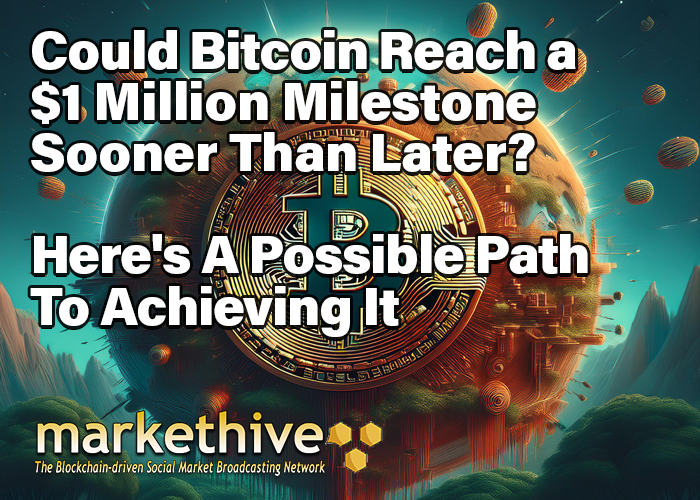


United States of Bitcoin? These States Are Considering BTC Reserves
UPDATE: With Trump back in the White House, the list of states considering Bitcoin reserve legislation has grown again. Here's the latest.
Donald Trump and his political allies are plugging away at plans to stockpile Bitcoin at a national level in the U.S. Treasury.
And now, with the asset’s price repeatedly soaring to new peaks since Election Day, some U.S. states are following suit.
So far, nine states are fielding proposals to establish strategic Bitcoin reserves, while digital asset advocates are calling for other local governments to do the same.
Here's which states are considering topping up their coffers with the world's oldest and most valuable digital currency. Read More
Current chain abstraction methods are fragmenting crypto — Web3 exec
Industry executives and competing firms are still grappling with abstracting away the complexities of blockchain for the end user.
Anurag Arjun, co-founder of Avail — a unified chain abstraction solution — and the Polygon layer-2 scaling solution, told Cointelegraph that most current chain abstraction techniques create even more fragmentation of the crypto ecosystem.
The tech founder said that each distinct blockchain base layer features its own set of security assumptions, making interoperability between chains challenging. Arjun explained:
"They have their own set of validators and their own crypto-economic security. So you have to create infrastructure called a light client, for example, bidirectional light clients. That is the main bottleneck in general."
Bridging between chains is typically a multi-step process of communication between blockchain networks that carries high costs and security risks while siloing users and capital into fragmented pools, the Avail co-founder added. Read More
Why This ETF Issuer Won't Touch Dogecoin Amid Solana and XRP Fund Plans
Canary Capital CEO Steven McClurg said his firm has no plans to offer a Dogecoin ETF, despite expectations of potential approvals this year.
The United States exchange-traded fund sector has become a Doge-eat-Doge world in recent weeks, with several asset managers clamoring to launch spot Dogecoin ETFs.
But at least one fund issuer isn't hopping into the Doge-pile. For cryptocurrency investment firm Canary Capital, the Shiba Inu-inspired meme coin is all bark and no bite.
Canary Capital CEO Steven McClurg told Decrypt this week that his firm has no plans to launch a spot Dogecoin ETF, pointing both to the digital currency’s unlimited supply and lack of utility.
The company is one of several issuers engaged in a race to ramp up its crypto-based investment offerings following the U.S.’ pivot to a more digital asset-friendly regime under President Donald Trump. Canary has already filed to launch spot funds based around Solana, XRP, Litecoin, and HBAR—but McClurg said the firm won’t join the DOGE ETF fray.
“I have a hard time putting [Dogecoin] in an ETF wrapper, because the coin is literally designed to go down in value and constantly increase in supply,” McClurg told Decrypt.
“There's no limited supply there, so you're essentially putting something in an ETF wrapper that's designed to go towards zero,” he added. Read More
Quantum computing will bring lost Bitcoin 'back in circulation’ — Tether CEO
Tether CEO Paolo Ardoino predicts that quantum computing will eventually hack inactive Bitcoin wallets, returning the Bitcoin in those wallets to circulation.
However, he says this is still a long way off.
“Any Bitcoin in lost wallets, including Satoshi (if not alive), will be hacked and put back in circulation,” Ardoino said in a Feb. 8 X post.
Quantum computing won’t break Bitcoin anytime soon:
“Quantum computing is still very far from any meaningful risk of breaking Bitcoin cryptography,” he added.
Quantum computing is a new technology that can handle multiple possibilities and solve complex problems using atomic-level phenomena, which regular computers can’t handle.
Lost Bitcoin wallets are at greater risk as quantum computing advances since there’s no one to protect or move the funds. Active wallets, on the other hand, are more likely to adopt quantum-resistant protection as it becomes available.
He explained that all Bitcoin wallets owned by people still alive and with access to their wallets will be moved into new “quantum-resistant addresses.” Read More
Kentucky and Maryland Are the Latest States to Consider Bitcoin Reserve Bills
Maryland and Kentucky this week joined a growing list of U.S. states mulling Bitcoin and other digital assets as a way to strengthen their reserves.
Dubbed the Strategic Bitcoin Reserve Act of Maryland, a measure introduced by Democratic State Delegate Caylin Young on Friday would enable the state to establish exactly that, according to a description of the bill’s text.
While some state lawmakers have introduced bills that call for investments in digital assets broadly, Young’s bill explicitly mentions the largest cryptocurrency by market cap. What’s more, the bill authorizes the Maryland State Treasurer to invest in Bitcoin using funds derived from the “enforcement of certain gambling violations.”
Young’s bill was preceded by a bill with a less descriptive title in Kentucky—currently dubbed House Bill 376. Introduced by T.J. Roberts, a Republican member of the Kentucky State House of Representatives, the bill calls for the state to begin investing in digital assets and precious metals.
Bitcoin, nor any other cryptocurrency, is explicitly referred to in Roberts’ bill by name, according to the bill’s text. However, it limits digital assets that can be bought by the state to those with a market capitalization of at least $750 billion, making Bitcoin Kentucky’s de facto option. Read More
Could Bitcoin Reach A $1 Million Milestone Sooner Than Later? Here's A Possible Path To Achieving It

In the past half-year, Bitcoin (BTC) has seen remarkable expansion, with its value rising by 50% and breaking the $100,000 barrier for the first time. The cryptocurrency community is bullish on the recent election outcome, expecting President Donald Trump's leadership to fuel further growth and propel Bitcoin to new levels in the years to come. The cryptocurrency space is abuzz with interest, and a recent announcement from the Trump administration, which is seen as more crypto-friendly, has sparked anticipation that it could be a catalyst for even more incredible price appreciation for Bitcoin.
Following Gary Gensler's resignation as the Chairman of the Securities and Exchange Commission (SEC), known for his negative stance on cryptocurrency, Mark Uyeda has taken on the role of acting chairman. Uyeda is recognized for supporting cryptocurrency and blockchain advancements, marking a notable shift from Gensler's strict regulatory strategies. Uyeda's more favorable stance towards cryptocurrency could potentially lead to less stringent regulations, positively impacting Bitcoin's value. Uyeda will serve as acting chairman until the Senate confirms Paul Atkins, the nominated SEC chairman. Read More
Soon, TradFi Will Run Out of Excuses To Stay Away From DeFi
If we had to select the single most important crypto-related event of the last year, a majority might point to Donald Trump’s successful reelection bid, which triggered a surge in Bitcoin and most other major tokens.
Others may point to Bitcoin’s halving in April or the launch of more than 10 spot Bitcoin ETFs following their approval by the SEC in early 2024.
Less flashy, yet equally significant developments – like a substantial growth in stablecoins adoption – strengthen the industry’s foundation.
This adoption also helped facilitate a more robust DeFi (decentralized finance) ecosystem while improving its connectivity with TradFi (traditional finance).
With crypto maintaining its momentum in 2025, it will take more than just an expanded stablecoin adoption to fuel DeFi-TradFi collaboration.
DeFi’s progress paves the way for TradFi: Read More
Tether CEO Paolo Ardoino Says Firm Working on Several AI Products, Including Bitcoin Wallet Assistant
Tether CEO Paolo Ardoino just unveiled some of the artificial intelligence (AI) products that the stablecoin company is currently working on.
In a statement on social media platform X, Ardoino says that Tether Data, the USDT issuer’s new initiative focused on AI and peer-to-peer (P2P) technologies, is building new applications, which include AI translate, AI voice assistant and AI Bitcoin (BTC) wallet assistant.
“Tether Data, preview of some of the AI apps we’re developing: AI translate, AI voice assistant, AI bitcoin wallet assistant.”
Ardoino says the apps will be directly accessible on any device.
“Tether Data’s apps will focus on working locally on any device, full privacy, self-custodial (both data and money).”
He says Tether also plans to roll out a software development kit (SDK) for building AI-powered applications.
“Tether will launch soon its own AI SDK platform, open-source, built upon Bare (Holepunch’s javascript runtime), working on every hardware, from embedded devices, any mobile phone (budget or high-perf), any laptop, powerful servers, clusters of servers.” Read More
Ethereum Price Rises as Lightchain AI Revolutionizes Blockchain With AI Integration
PRESS RELEASE.
Ethereum, the second-largest cryptocurrency by market cap, has been lighting up investors’ portfolios with its recent price surge. But it’s not just Ethereum making waves in the crypto and blockchain space right now. A new disruptor is emerging, and its name is Lightchain AI.
Combining artificial intelligence (AI) with blockchain technology, Lightchain AI is making headlines for its groundbreaking solutions and innovative approach. Currently, in Stage 14 of its Presale (out of 15), Lightchain AI offers an unmissable opportunity for investors, AI developers, and tech enthusiasts to be part of a revolutionary movement.
Curious about why this matters? Read on to discover how Ethereum’s momentum aligns with Lightchain AI’s innovations—and why savvy investors and tech enthusiasts are turning their attention to this unique opportunity. Read More
FDIC to Revise Guidelines, Opening the Door for Banks to Engage in Crypto
The FDIC is set to revise its crypto guidelines, potentially allowing banks to engage in digital asset activities. This shift aligns with the pro-crypto stance of the Trump administration, paving the way for tokenized deposits and broader banking participation in crypto.
FDIC to Allow Banks to Engage in Crypto:
In a major policy shift, the U.S. Federal Deposit Insurance Corporation (FDIC) is reportedly revising its crypto guidelines, removing regulatory hurdles that have long kept banks from engaging in digital asset activities.
According to a report by Barrons, the FDIC aims to eliminate the need for prior approval before banks can offer crypto-related services, including tokenized deposits that could bring checking accounts onto blockchains.
Acting Chairman Travis Hill acknowledged that banks seeking to enter the crypto space have faced delays and regulatory resistance under past policies.
This move follows a court-ordered release of internal FDIC documents prompted by a lawsuit from Coinbase, which sought transparency on regulatory decisions regarding crypto.
If implemented, this policy shift could rapidly accelerate bank adoption of crypto. Bank of America CEO Brian Moynihan recently confirmed that banks are ready to engage once regulations permit. Read More
Kite AI introduces AI-driven layer-1 blockchain on Avalanche
Avalanche Network is debuting the first institutional-grade blockchain focused on artificial intelligence.
The AI-focused testnet, developed by decentralized AI infrastructure provider Kite AI, aims to enhance scalability and data processing while providing centralized coordination for AI workflows, including data providers, model builders and autonomous agents, according to a Feb. 6 announcement shared with Cointelegraph.
The testnet aims to introduce the next generation of AI-driven infrastructure for Web3 builders, according to Chi Zhang, co-founder and CEO of Kite AI.
More transparency for AI algorithms could bolster institutional participation, Zhang told Cointelegraph.
“Institutional participants are often AI application users who are looking for a rich AI marketplace of AI agents and models to automate tasks, enhance efficiency and improve internal operations,” he added.
Zhang said compliant data attribution and lineage are key for institutions that manage large volumes of internal data to build advanced AI models and agents.
The new testnet comes during a period of increased investor interest in AI, a day after 0G Foundation launched an $88.88 million ecosystem fund to accelerate projects creating AI-powered decentralized finance (DeFi) applications and autonomous agents, also known as DeFAI agents. Read More
Disclaimer: These articles are provided for informational purposes only. They are not offered or intended to be used as legal, tax, investment, financial, or any other advice.
Featured Image Source: Pixabay